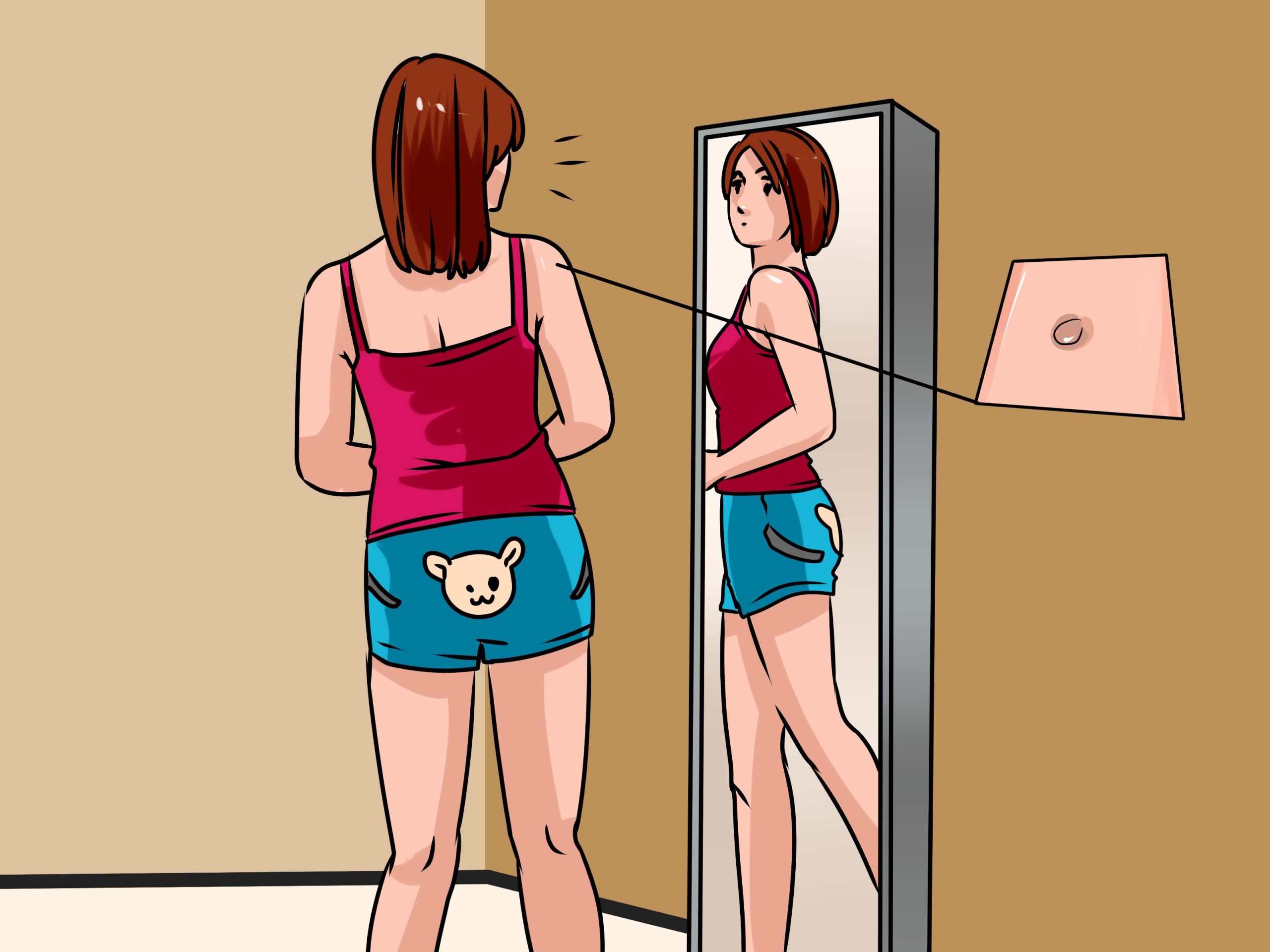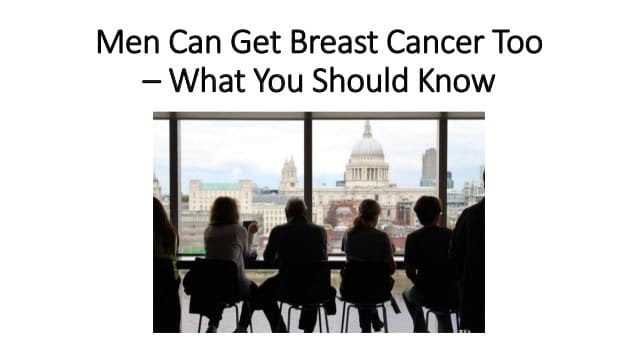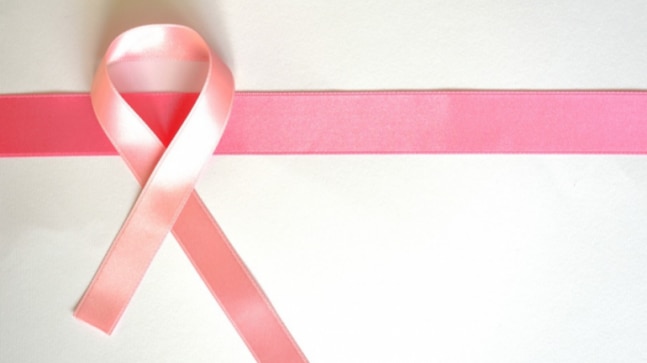Do Mobile Phones Cause Breast Cancer
Theres no evidence that radiation from mobile phones has any effect on your risk of developing breast cancer.
Some people worry that radio waves produced and received by mobile phones may be a health risk, especially if they keep their phone in their breast pocket.
However, theres currently no evidence that radio waves from mobile phones cause breast cancer or increase the risk of developing it.
Detecting Breast Cancer In Younger Women
While theres no way to predict who will get breast cancer, some factors put women at higher risk at a younger age. Breast cancer risk is higher in women with a family history of breast or ovarian cancers at a young age or who have an Ashkenazi Jewish heritage. Having had radiation therapy in the chest is another important risk to know about.
There are some steps you can take, including discussing your family cancer history with your doctor and taking advantage of genetic testing for BRCA and other genetic mutations, if offered, based on your health and family history.
Through research, we are learning more about cancer, genetics, and risk factors, says Dr. Andrejeva-Wright. Young women should be aware of their family history and keep their doctors updated over time as it changes.
Also, while guidelines no longer call for monthly at-home breast exams, Dr. Andrejeva-Wright urges women of all ages to be breast aware. She advises women to do a breast self-exam at least quarterly and to learn all they can about their risk factors.
Breast awareness entails knowing your family history of breast and other cancers, says Dr. Andrejeva-Wright, It also means knowing any behavioral factors that may increase your risk of developing breast cancer, such as weight gain and alcohol consumption , and doing something about it.
Shift Work May Increase Risk Of Breast Cancer
The International Agency for Research on Cancer recently concluded that women who worked night shifts for 30 years or more were twice as likely to develop breast cancer. However, women who work nights are advised not to panic. Its worth noting that no link was found between higher breast cancer risk and periods of night work which were shorter than 30 years.
All photography is for illustrative purposes only and all persons depicted are models.
- 12.09.2021
Recommended Reading: What Is Stage 3a Breast Cancer
Is Cancer A Death Sentence
In the United States, the likelihood of dying from cancer has dropped steadily since the 1990s. Five-year survival rates for some cancers, such as breast, prostate, and thyroid cancers, now are 90 percent or better. The 5-year survival rate for all cancers combined is currently about 67 percent. For more information, see the Annual Report to the Nation on the Status of Cancer.
It is important to note, however, that these rates are based on data from large numbers of people. How long an individual cancer patient will live and whether he or she will die from the disease depend on many factors, including whether the cancer is slow or fast growing, how much the cancer has spread in the body, whether effective treatments are available, the persons overall health, and more.
Breast Pain Not Linked To Periods

Sometimes breast pain is caused by:
- injuries or sprains to the neck, shoulder or back these can also be felt as breast pain
- medicines like the contraceptive pill and some antidepressants check the side effects in the packet’s information leaflet
- conditions like mastitis or a breast abscess these can cause breast pain along with other symptoms
- pregnancy breast pain can be an early sign
Recommended Reading: Can Stage 3 Breast Cancer Be Cured
Treat Breast Cancer Protect The Heart
Future heart risks should not be the reason to abandon this important component of treatment. I dont think by any means it should make anyone forego radiation for breast cancer therapy, says Dr. Javid Moslehi, instructor in the department of medicine at Harvard Medical School, and co-director of the cardio-oncology program at Brigham and Womens Hospital.
The ultimate goal is to minimize the exposure to the heart as much as possible, Dr. Taghian says.
In the JAMA study, researchers found that having a woman lie on her stomach during radiation treatment reduced her exposure. Dr. Taghian uses a technique called the breath-hold with his patients. Holding a breath expands the lungs, which pushes the heart out of the radiations path. This technique can cut radiation exposure to different structures of the heart by 54% to 96%.
Protecting women from the side effects of radiation is not a one-size-fits-all approach. I dont think there is one method to fit all patients, he says. The bottom line is we have to try the optimal method for each patient to avoid exposing the heart.
Proton therapya relatively new radiation treatment that uses particles instead of traditional x-rayscan also lower a womans exposure, but very few centers currently offer this treatment. In the future, this will probably be the dominant way to spare the heart, Dr. Taghian says.
What Are The Most Common Causes Of A Breast Bruise
The appearance of a breast bruise can often cause alarm in many women. It usually appears as a skin discoloration, which can be blue, green, or purple, in one or both breasts. One of the most feared causes of breast bruise is inflammatory breast cancer. Other common causes of breast bruise include injury or trauma to the breast, coagulopathy disorders, and blood-thinning medications. Wearing of ill-fitting bras may also result in the formation of a breast bruise.
One type of breast cancer that may cause breast bruise is inflammatory breast cancer. It usually occurs when cancer cells cause blockage in the lymph nodes of the breast. This type of cancer occurs very rarely. Symptoms include enlargement of the affected breast, skin discoloration that ranges from red to purple, appearance of dimples in the skin, and tenderness or pain. The breast may also feel warm to the touch, and the nipple may be flattened.
Read Also: Did Anne Hathaway Have Breast Cancer
What Causes Breast Pain
There are a number of harmless causes for breast pain and tenderness that may primarily be related to changes in hormone levels. These can include:
- Puberty in girls and sometimes for boys, too
- Menstruation and premenstrual syndrome
- Pregnancy more often during the first trimester
- Days following childbirth as milk comes in Breastfeeding Mastitis, which is caused by a milk duct that is not properly draining and becomes infected, should be treated. It has no correlation with cancer, but it can become a serious infection if left untreated.
- Menopause
- A benign cyst
Do Power Lines Cause Cancer
No, not according to the best studies completed so far. Power lines emit both electric and magnetic energy. The electric energy emitted by power lines is easily shielded or weakened by walls and other objects. The magnetic energy emitted by power lines is a low-frequency form of radiation that does not damage genes. For more information, see the NCI fact sheet on Electromagnetic Fields and Cancer.
Recommended Reading: How To Cure Breast Cancer With Baking Soda
Why Do Girls Need Them
Most teens don’t need breast exams. That’s because it’s rare for girls to have breast problems. Doctors usually just look at a girl’s breasts during her yearly gyn checkup to see where she is in her development. But if you have a family history of breast problems, your doctor or nurse might give you a breast exam.
Maintain A Healthy Weight
Excess body weight increases the odds of getting breast cancer after menopause. Extra weight can also make cancer more likely to advance when it arises. The reason seems to be that fat cells produce estrogensfemale hormones that can help cancer cells to form and spread. Being overweight also increases your risk of other problems like diabetes, high blood pressure, heart disease, and other kinds of cancer.
What is a healthy weight? You can see how your weight fits with a healthy range by checking your body mass index . A healthy BMI is between 18.5 and 24.9. Find out your body mass index using the Pink Lotus BMI Calculator.
Also Check: What Are The Chances Of Getting Breast Cancer Twice
Side Effects Of Breast Trauma
Traumatic breast injury is defined as any action or incident that causes damage to your breast or breast tissue. While most breast injuries do not result in permanent damage to the breasts, the result of breast trauma can be troubling to the person. Symptoms like pain, bruising, or a lump in the breast can make you believe you have breast cancer, but these tissue injuries, while uncomfortable, most often just require time for recovery.
Can Cancer Surgery Or A Tumor Biopsy Cause Cancer To Spread In The Body

The chance that surgery will cause cancer to spread to other parts of the body is extremely low. Following standard procedures, surgeons use special methods and take many steps to prevent cancer cells from spreading during biopsies or surgery to remove tumors. For example, if they must remove tissue from more than one area of the body, they use different surgical tools for each area. For information about how cancer spreads in the body, see our page on Metastatic Cancer.
Read Also: Is Stage 3 Breast Cancer Curable
Know Your Heart Risks
Before having radiation for breast cancer, a woman should have a discussion with her oncologistas well as her cardiologist. Ask the oncologist what dose of radiation youll be getting, and how your heart will be protected during treatment. Talk to your cardiologist about your existing heart risks, and how to reduce them.
Its especially important to consider your heart if youre also having chemotherapy, which is well known for its cardiotoxicity. We cant avoid the heart risks with chemotherapy, but with radiation we could lower them using better technology and better understanding, Dr. Taghian says.
Though you may not be able to fully protect your heart from cancer treatment, there are other lifestyle-based heart disease risks you can control. In the JAMA research letter, women who were least likely to develop heart disease were those who were already at low risk based on their cholesterol, blood pressure, and C-reactive protein levels. Make sure the blood pressure is under control, youre not smoking, you have a healthy lifestyle, and you control your cholesterol, Dr. Moslehi advises.
Breast Injury Side Effects
Trauma to the breast has the potential to cause severe side effects due to surrounding structures within the breast that can be injured.
Examples include injuries of the blood supply to the breast, such as the branches of the internal mammary artery and of the axillary artery that provides blood flow to the breast tissue.
Injury to the major blood supply to the breast can result in swelling and significant blood loss until treatment is received. More commonly, smaller superficial arteries along with veins become injured, leading to more localized injury and less serious bleeding and bruising.
Some people can experience tearing or direct injury to the mammary ducts, which could affect the future or current flow of breast milk. These are rare, but potential, complications associated with breast trauma.
Most traumatic breast injuries will not result in severe side effects. But it is possible that some people could experience severe complications, such as excessive bleeding due to major blood vessel damage.
Symptoms of severe bleeding can include:
- feeling faint
- rapid heart rate
- shock due to blood loss
These symptoms require emergency treatment and surgery to ensure blood loss due to the injury is stopped.
Read Also: Baking Soda And Honey For Cancer
What Are Dense Breasts
Breasts contain glandular, connective and fatty tissue. Breast density is a term used to describe the different proportions of these tissue types as detected by a mammogram. Dense breasts have relatively high amounts of connective and/or glandular tissue and low amounts of fatty tissue. Only a mammogram can show if a woman has dense breasts. Breast density is not related to how the breasts look, feel, their size or firmness.
On a mammogram, connective or fibrous tissue appears white while fatty tissue appears dark. Because breast cancers also appear white, this may make it more difficult for specialists to identify cancer in women with dense breasts. However, even with dense breasts, a screening mammogram is still the most effective method to detect breast cancer early for women over age 50.
Dense breasts also tend to be more common in younger women or women with a lower body mass index. In addition, breast density tends to decrease as women become older.
What Are Breast Lobes And Breast Ducts
Each female breast contains 15-20 sections called lobes. Each lobe is made up of many smaller sacs called lobules . It is these lobules that produce milk in breastfeeding women. The lobes and lobules are connected to the nipple by tubes called ducts, which carry milk to the nipple. Milk flows through the nipple to the outside during breastfeeding.
Recommended Reading: Can You Get Rid Of Breast Cancer
If Someone In My Family Has Cancer Am I Likely To Get Cancer Too
Not necessarily. Cancer is caused by harmful changes in genes. Only about 5 to 10 percent of cancers are caused by harmful mutations that are inherited from a persons parents. In families with an inherited cancer-causing mutation, multiple family members will often develop the same type of cancer. These cancers are called familial or hereditary cancers.
The remaining 90 to 95 percent of cancers are caused by mutations that happen during a persons lifetime as a natural result of aging and exposure to environmental factors, such as tobacco smoke and radiation. These cancers are called non-hereditary or spontaneous cancers. For more information about the risk of getting cancer, see the NCI fact sheet on Genetic Testing for Inherited Cancer Susceptibility Syndromes and Cancer Causes and Risk Factors.
Breast Changes During Your Lifetime That Are Not Cancer
Most women have changes in the breasts at different times during their lifetime.
- Before or during your menstrual periods, your breasts may feel swollen, tender, or painful. You may also feel one or more lumps during this time because of extra fluid in your breasts. Your health care provider may have you come back for a return visit at a different time in your menstrual cycle to see if the lump has changed.
- During pregnancy, your breasts may feel lumpy. This is usually because the glands that produce milk are increasing in number and getting larger. While breastfeeding, you may get a condition called mastitis. This happens when a milk duct becomes blocked. Mastitis causes the breast to look red and feel lumpy, warm, and tender. It may be caused by an infection and it is often treated with antibiotics. Sometimes the duct may need to be drained.
- As you approach menopause, your hormone levels change. This can make your breasts feel tender, even when you are not having your menstrual period. Your breasts may also feel more lumpy than they did before.
- If you are taking hormones your breasts may become more dense. This can make a mammogram harder to interpret. Be sure to let your health care provider know if you are taking hormones.
- After menopause, your hormone levels drop. You may stop having any lumps, pain, or nipple discharge that you used to have.
You May Like: Did Anne Hathaway Have Breast Cancer
Can You Get Breast Cancer By Getting Hit On Your Breast
Can u get breast cancer by hitting from lock combination
No you can’t. Cancer comes from abnormalities within cells. And your more likely to get cancer if your family member has everyhad it. but the chances of getting it from being hit to hard are low
Hi, Anon:
No. Simply put, cancer isn’t caused by getting hit, wearing deodorant or underwire bras, for that matter.
I recommend watching Dr. Harness’ video: What Causes Breast Cancer to learn important information and dispel your fears.
Hope this helps.
All user-generated information on this site is the opinion of its author only and is not a substitute for medical advice or treatment for any medical conditions. Members and guests are responsible for their own posts and the potential consequences of those posts detailed in our Terms of Service.
What Determines One’s Breast Cancer Risk

The chances that a particular breast lump could be cancerous depends on many factors, including a woman’s past medical history, her physical examination, and results of radiological tests . Some of the most important risk factors are outlined below.
History
Age is the biggest risk factor for breast cancer. In other words, most cases of breast cancer occur due to the fact that the risk of breast cancer increases with age. Most women with breast cancer do not have a history of breast cancer. A woman who has had a prior breast cancer or who has a family history of breast cancer is certainly at risk herself, especially if multiple family members are involved, the cases occurred at a young age, or if the cancer involved both breasts of a single family member.
Women who have received radiation therapy to the chest area as treatment for another cancer have a significantly increased risk for breast cancer.
Genetic factors
About 5% to 10% of breast cancer cases have been shown to be related to inherited gene changes . The most common mutations are those of the BRCA1 and BRCA2 genes, although other genetic mutations may also lead to breast cancers.
Abnormal findings on previous breast biopsies
The finding of certain conditions on previous breast biopsies can also increase the risk for developing breast cancer. Pre-cancerous growths and growths noted on a breast biopsy that represent an increased risk for the development of breast cancer include the following:
Don’t Miss: Is Stage 1 Breast Cancer Curable